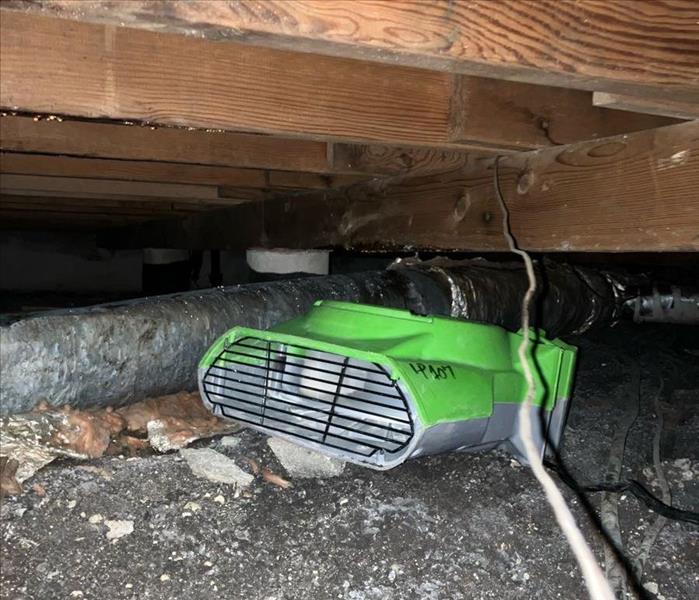Preparing Balch Springs for Winter Weather!
1/16/2024 (Permalink)
 SERVPRO of Balch Springs is located in Balch Springs, this allows us to reach your home or business in timely manner!
SERVPRO of Balch Springs is located in Balch Springs, this allows us to reach your home or business in timely manner!
Cold weather can be detrimental to pipes for several reasons, primarily due to the phenomenon of freezing. Here are the key reasons why cold weather can be harmful to pipes:
Freezing Temperatures:
- The most significant risk is the potential for water inside pipes to freeze. When water freezes, it expands, and this expansion can exert tremendous pressure on the walls of the pipes.
Bursting Pipes:
- The expansion of frozen water inside pipes can lead to pipe rupture or bursting. This can cause extensive water damage to your property when the ice blockage thaws and water starts flowing again.
Vulnerability of Exterior Pipes:
- Pipes located in exterior walls, crawl spaces, attics, or unheated areas are particularly vulnerable to freezing. Lack of insulation or exposure to cold air increases the risk.
Lack of Insulation:
- Inadequate insulation around pipes can allow them to be more susceptible to the cold. Proper insulation helps retain some heat and protects pipes from freezing temperatures.
Exterior Faucets and Hoses:
- Outdoor faucets and hoses are at risk in cold weather. Water left inside hoses or outdoor pipes can freeze, leading to damage. It's crucial to disconnect hoses and drain water from outdoor faucets before winter.
Thermal Contraction:
- Extreme cold can cause thermal contraction, where pipes contract due to the cold temperature. This contraction can create stress on the pipes and joints, potentially leading to leaks.
Pre-existing Issues:
- Cold weather can exacerbate pre-existing issues in pipes, such as small cracks or weakened areas. The expansion of freezing water can worsen these vulnerabilities, leading to leaks or bursts.
Preventive Measures: To protect pipes from the negative effects of cold weather, consider the following preventive measures:
Insulation:
- Ensure proper insulation for pipes, especially in unheated areas like basements, crawl spaces, and attics.
Heat Tape or Cable:
- Use electric heat tape or cables to provide additional warmth to vulnerable pipes.
Seal Leaks:
- Seal any gaps or cracks in walls, windows, or doors to prevent cold air from reaching pipes.
Disconnect Outdoor Hoses:
- Disconnect and drain outdoor hoses, and shut off the water supply to outdoor faucets.
Let Faucets Drip:
- Allow faucets to drip slowly during extremely cold temperatures to keep water moving and prevent freezing.
Maintain Interior Temperature:
- Keep your home adequately heated, especially during cold spells, to maintain a warmer environment for pipes.
By taking these preventive measures, you can reduce the risk of frozen pipes and the potential for costly water damage associated with burst pipes during cold weather.




 24/7 Emergency Service
24/7 Emergency Service